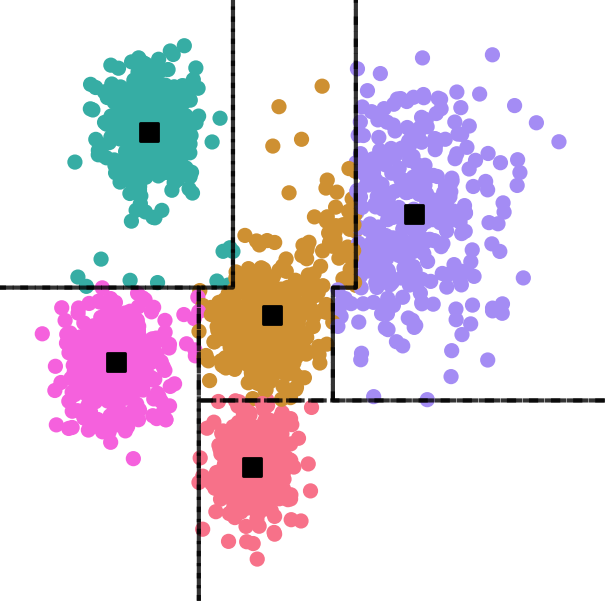Kevin Quinn
(he\him)
PhD Student
Computing and Data Science, Boston University
quinnk@bu.edu
About Me
Hello! I'm a PhD student in Data Science at Boston University. My interests are mainly in algorithms for data mining, especially in clustering and other geometrical problems. I am currently researching algorithms for interpretable clustering, which allow users to better understand the decision making process of their clustering model. Lately I am also very interested in computational social choice, and am thinking about how to study voting systems with metric space simulations.
More broadly I find it important to think about how data science and machine learning interact with our world, and how they might be used responsibly to answer interesting questions.Publications
Characterizing Covid Waves via Spatio-Temporal Decomposition
with Evimaria Terzi and Mark Crovella
In Proceedings of the 28th ACM SIGKDD Conference on Knowledge Discovery and Data Mining (KDD '22).
Projects
Check out my github page for code.
I am currently developing and experimenting with clustering algorithms that use interpretable decision boundaries. These boundaries are simple rules or logical conditions (often linear, axis parallel conditions) that can be easily understood by users. This produces models which are not only more transparent, but also powerful analytical tools.
Proportional Voting in Metric Space
I am also working on a project that studies voting systems in metric spaces. In such a setting, voters and candidates are represented as points in space and the distances between them represents differences computed according to a chosen metric. While this is a simplified and perhaps unrealistic model, it does allows for nice visualizations and simulations of voting systems. Our aim is to study how different voting mechanisms perform in this setting, measuring proportionality and fairness in the election results.
Clustering Spatio-Temporal Waves of Covid-19
In this project we developed a methodology to cluster spatio-temporal waves of Covid-19 cases. It has been popular to refer to 'waves' of Covid-19 cases, but how did different geographical locations experience them and how did those patterns change over time? We designed an algorithm which 1) Splits a location's time series into wave segments and 2) Clusters these segments into groups of similar waves.